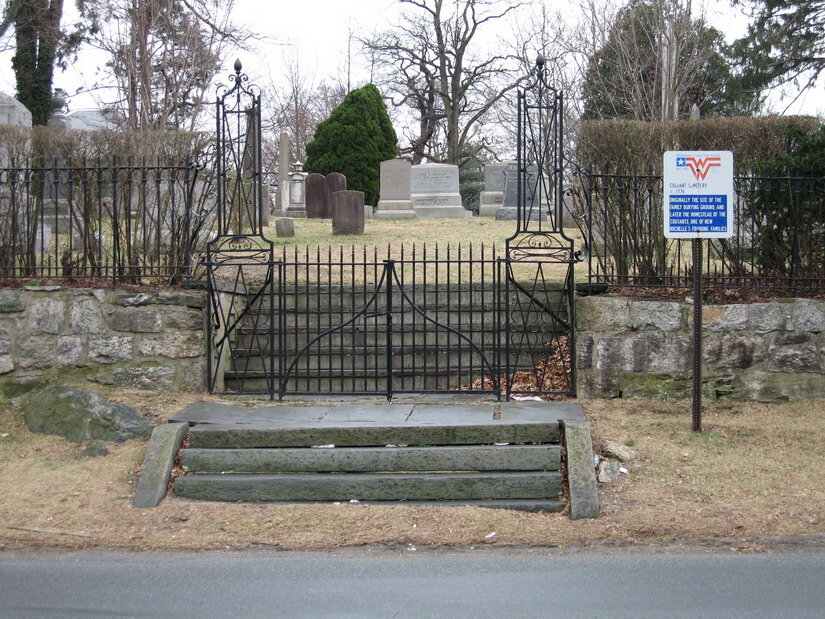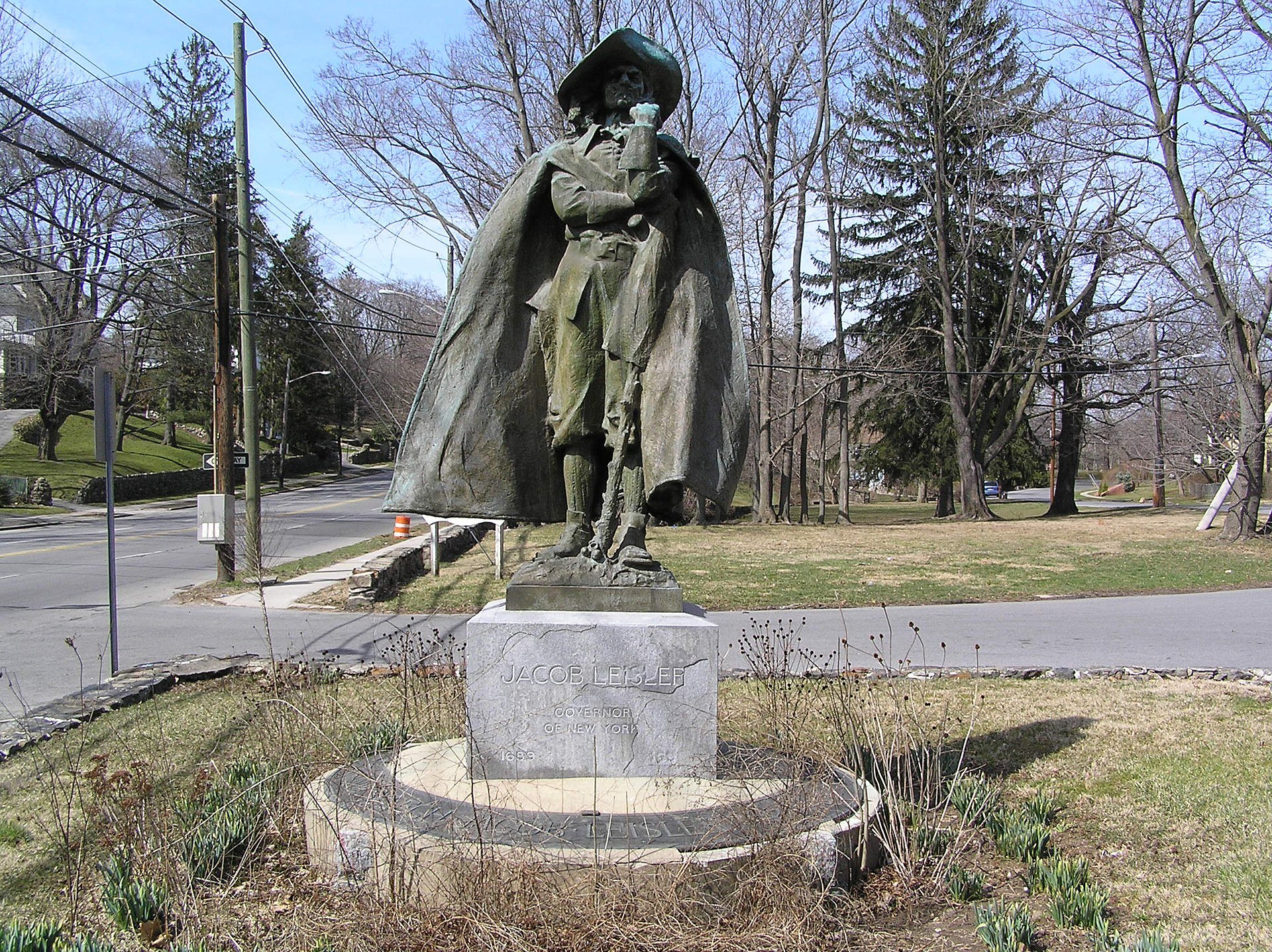
The Historic Cemetery
A descendant of one of the founding families of New Rochelle, Isaac Coutant, Jr. (1723-1802) owned a farm at the current site of the cemetery. His mother, Catherine Bonnefoy Coutant died on October 18, 1776. Due to the approach of the British Army after the Battle of Pell's Point and prohibitions at the time against burial in the public cemetery, Mrs. Coutant was buried on a secluded part of the farm and became the first internment in what would become the family cemetery. Coutant, Jr. was married to Francoise Badeau Coutant (1731-1825) and one of their daughters was the second burial two years later in 1778.
Who are the Coutant’s?
Isaac Coutant Jr., the founder (born 1723, died 1802), was the owner of a farm on which the cemetery is located. On October 18, 1776, Coutant's elderly mother had died and, due to the rapid approach of the British Army after the battle of Pell's point, and the interference of, military regulations, burials were not allowed to be made in the public cemetery of the town, so Mrs. Coutant was buried on a secluded part of the farm, thus becoming the first internment in this cemetery. The Coutant's daughter was the second burial which occurred in 1778. Memorial stones for both of these were erected late in the nineteenth century, long after the cemetery had been permanently established.
The Battle of Pell’s Point
The Battle of Pell's Point (October 18, 1776), also known as the Battle of Pelham, was a skirmish fought between British and American troops during the New York and New Jersey campaign of the American Revolutionary War. The conflict took place in what is now part of Pelham Bay Park (namely the Split Rock Golf Course and Pelham Bay Golf Course) in the Bronx, New York City and the towns of Pelham Manor and Pelham in Westchester County, New York.
History of New Rochelle
New Rochelle is a city in Westchester County, New York, United States, in the southeastern portion of the state. The town was settled by refugee Huguenots (French Protestants) in 1688 who were fleeing Catholic pogroms in France. Many of the settlers were artisans and craftsmen from the city of La Rochelle, France, thus influencing the choice of the name of "New Rochelle".
In 2007, the city had a population of 73,260, making it the seventh largest in the state of New York.


